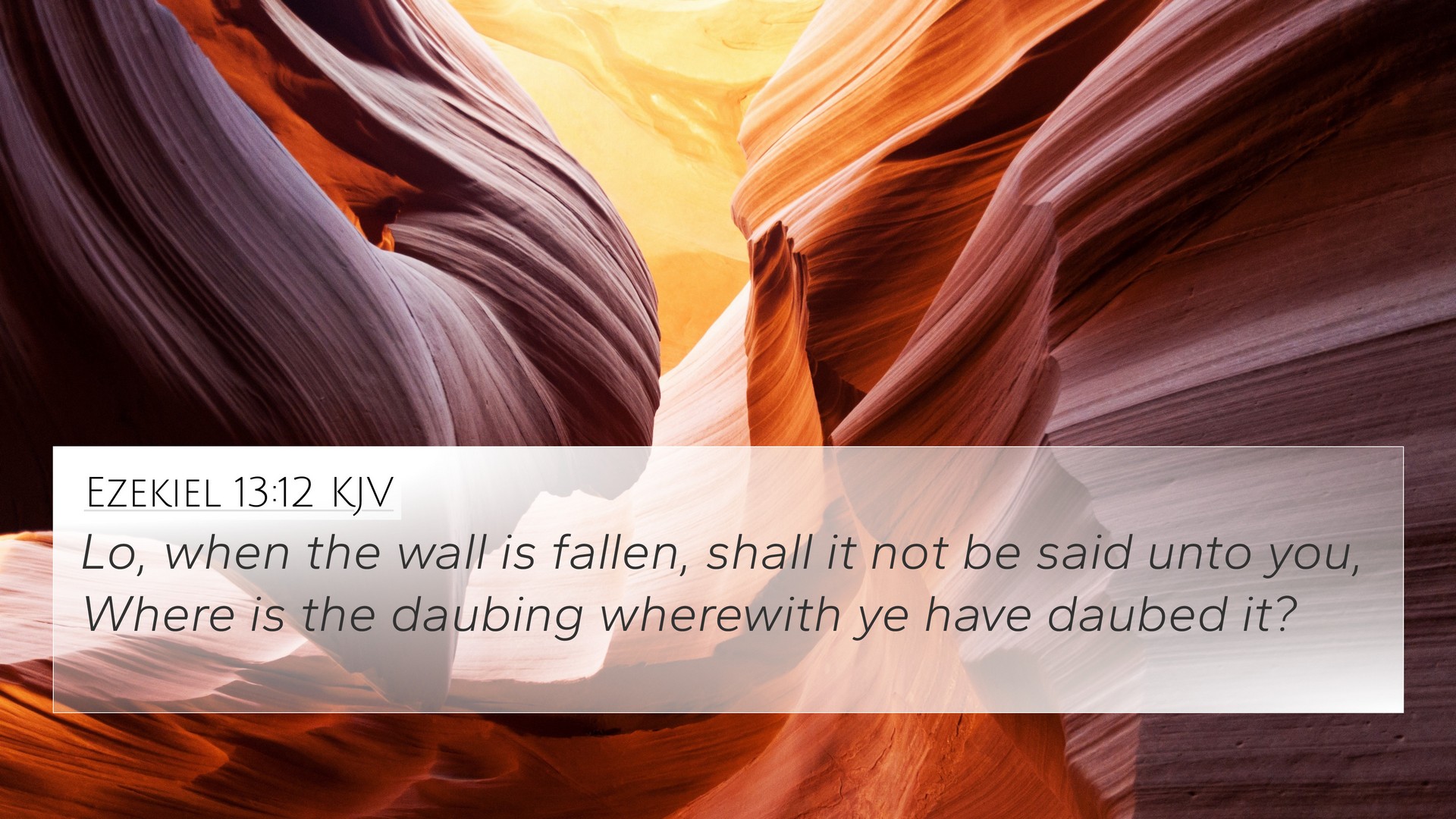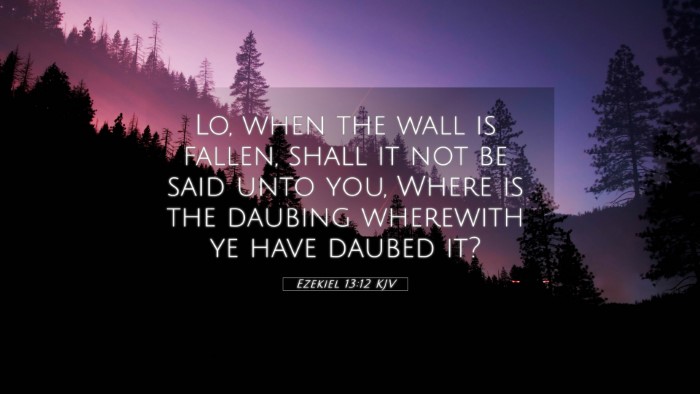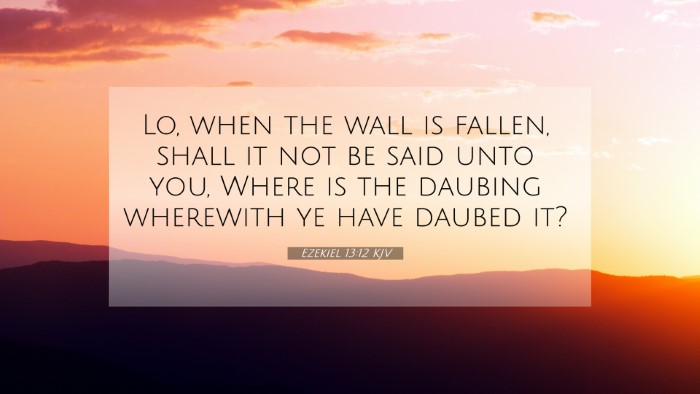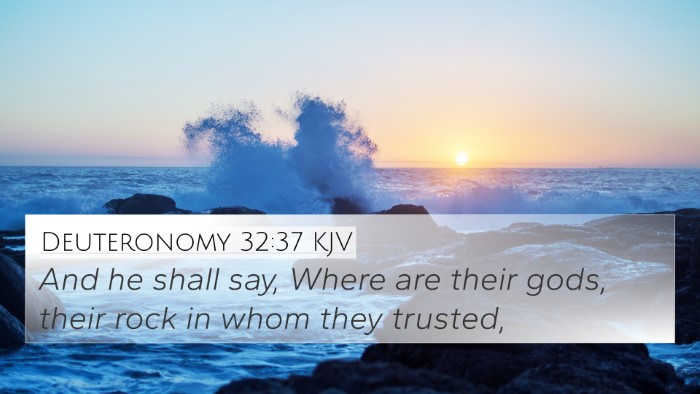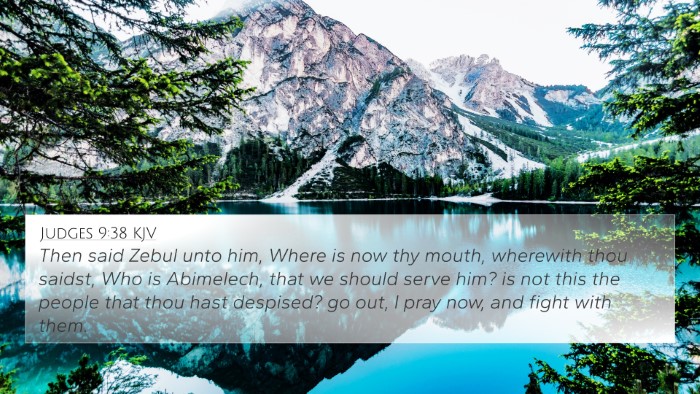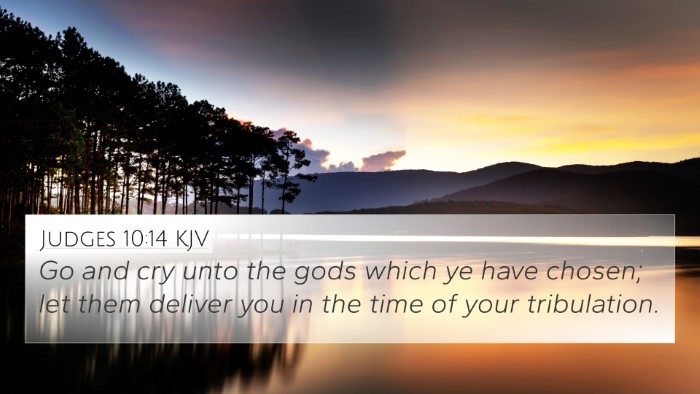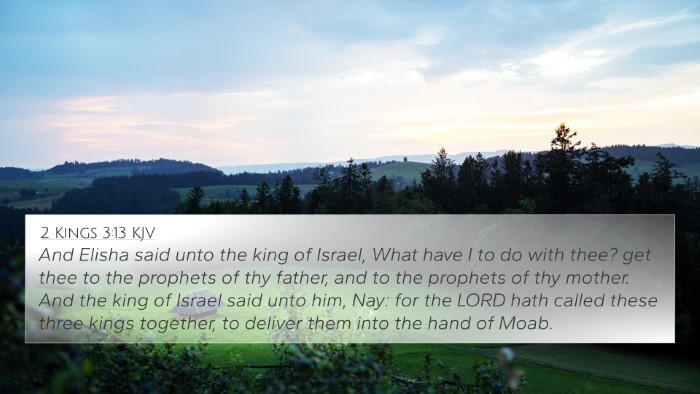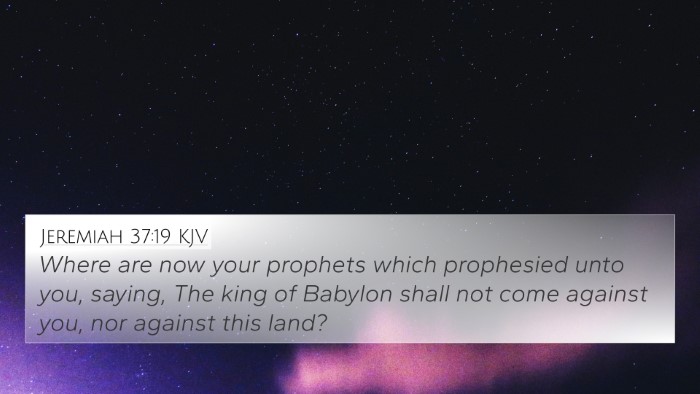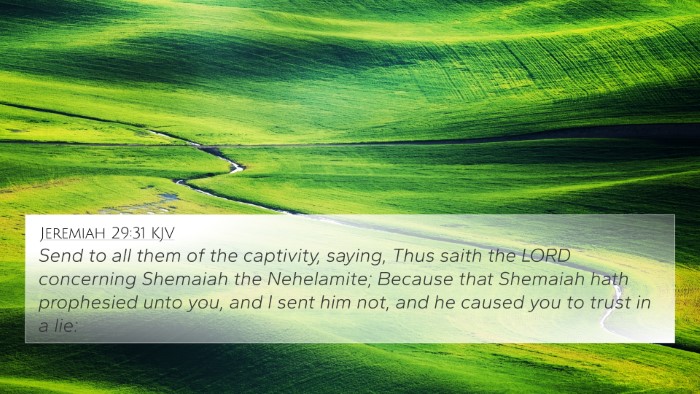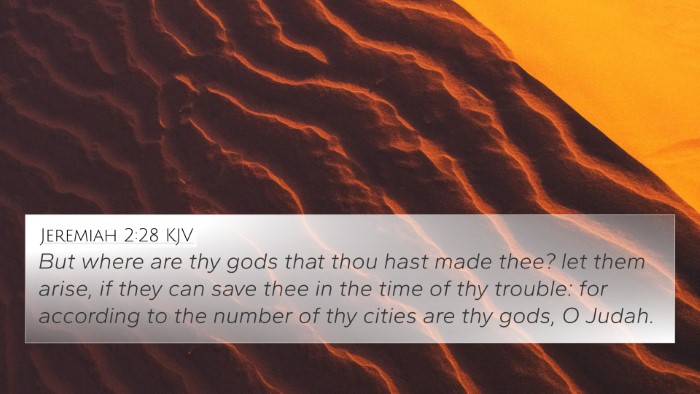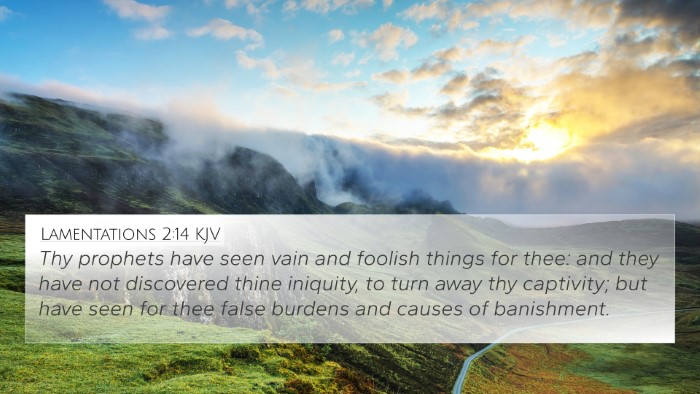Ezekiel 13:12 Interpretation
Ezekiel 13:12 states: "And, lo, when the wall is fallen, shall it not be said unto you, Where is the daubing wherewith ye have daubed it?" This verse is part of a larger section where the prophet Ezekiel addresses the false prophets who were misleading the people of Israel.
Summary of Biblical Context
This verse occurs in a warning to the leaders of Israel regarding their fraudulent practices. They had built false hopes, symbolized by a wall that was superficially reinforced with “daubing”—a term indicating a temporary or deceptive fix. Ezekiel questions the effectiveness of these false reassurances when the wall ultimately falls, highlighting the futility of their efforts.
Insights from Public Domain Commentaries
-
Matthew Henry's Commentary:
Henry suggests that the prophets' wall represents the false security and protection against God’s judgments that these leaders promised. The “daubing” symbolizes the superficial teachings that provided no real safety to the people, ultimately leading to their downfall.
-
Albert Barnes’ Notes:
Barnes elaborates on the metaphor of the wall, emphasizing that when judgment comes, these leaders will be unable to provide any real protection or justification for their actions. The rhetorical question posed serves to emphasize the ridicule of their claims of security.
-
Adam Clarke's Commentary:
Clarke highlights the significance of the “wall” representing human efforts and reliance on falsehood. He interprets the verse as a condemnation of those who manipulate the truth, suggesting that when divine judgment falls, their deceit will be exposed, revealing the lack of true support.
Bible Cross References
- Jeremiah 6:14: "They have healed also the hurt of the daughter of my people slightly, saying, Peace, peace; when there is no peace."
- Ezekiel 12:13: "My net also will I spread upon him, and he shall be taken in my snare: and I will bring him to Babylon, to the land of the Chaldeans; yet shall he not see it, though he shall die there."
- Matthew 7:26: "And every one that heareth these sayings of mine, and doeth them not, shall be likened unto a foolish man, which built his house upon the sand."
- Isaiah 30:13: "Therefore this iniquity shall be to you as a breach ready to fall, swelling out in a high wall, whose breaking cometh suddenly at an instant."
- Luke 6:49: "But he that heareth, and doeth not, is like a man that without a foundation built an house upon the earth; against which the stream did beat vehemently, and immediately it fell; and the ruin of that house was great."
- Proverbs 14:12: "There is a way which seemeth right unto a man, but the end thereof are the ways of death."
- 1 Thessalonians 5:3: "For when they shall say, Peace and safety; then sudden destruction cometh upon them, as travail upon a woman with child; and they shall not escape."
Thematic Connections
This verse can be studied alongside themes of false security and deception throughout the Scriptures. The idea that false prophets can lead people astray is a recurring motif in both the Old and New Testaments, emphasizing the need for discernment in spiritual matters.
Tools for Bible Cross-Referencing
To understand the connections between Bible verses, one can utilize resources such as:
- Bible concordances, which help locate verses and their contexts.
- Cross-reference Bible study guides, that connect themes and concepts across scriptures.
- Bible reference resources, to explore relationships between different texts.
- Comprehensive Bible cross-reference materials, which can provide thematic and textual insights.
Practical Application
The message of Ezekiel 13:12 can be particularly relevant in contemporary Christianity, where believers are encouraged to seek genuine, foundational truths rather than superficial teachings. It serves as a reminder to examine the teachings we accept and ensure they align with God’s word.
Conclusion
Ultimately, Ezekiel 13:12, through its vivid imagery and powerful metaphor, challenges believers to assess the foundations of their faith and the teachings they adhere to. By engaging in cross-referencing of biblical texts, one can deepen their understanding of the interconnectedness of scripture and the overarching narrative of truth amidst deception.
